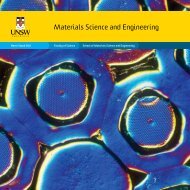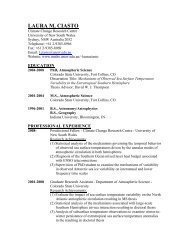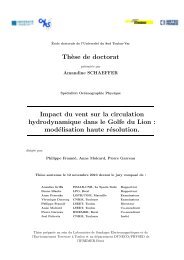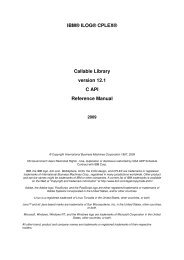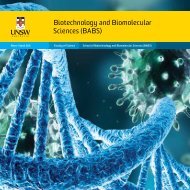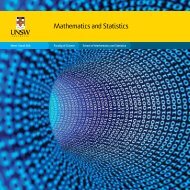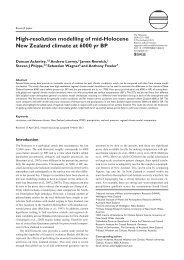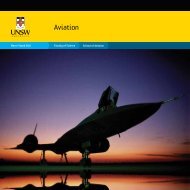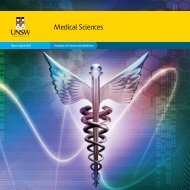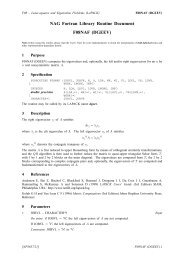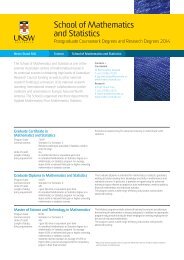2011 Postgraduate Research Competition - UNSW Science - The ...
2011 Postgraduate Research Competition - UNSW Science - The ...
2011 Postgraduate Research Competition - UNSW Science - The ...
Create successful ePaper yourself
Turn your PDF publications into a flip-book with our unique Google optimized e-Paper software.
Page |47<br />
Variation of pertussis toxin promoter (ptxP) and the<br />
re-emergence of Bordetella pertussis<br />
Connie Lam and Ruiting Lan<br />
School of Biotechnology & Biomolecular <strong>Science</strong>s<br />
Abstract<br />
Variation of pertussis toxin promoter (ptxP) and the re-emergence of Bordetella pertussis<br />
Vaccines against pertussis, caused by the bacterium Bordetella pertussis, were developed in<br />
the 1950s, but due to side effects were replaced by acellular vaccines in the 1990s. Despite<br />
high vaccination rates, epidemic cycles of pertussis continue to occur, with the most recent<br />
Australian epidemic in 2008.<br />
Isolates of B. pertussis have been characterised by changes in genes encoding antigenic<br />
components of acellular vaccines, including pertussis toxin. <strong>The</strong> production of pertussis toxin is<br />
controlled by the gene ptxP. In this study, the ptxP of 313 global B. pertussis isolates were<br />
sequenced. <strong>The</strong>re were 2 predominant ptxP types: ptxP1 and ptxP3 which differed by a<br />
single base change. ptxP3 has been shown to be capable of inducing the organism to<br />
produce a higher level of toxin.<br />
We found 73% of isolates carried ptxP1, and were largely older isolates collected prior to the<br />
introduction of the acellular vaccine. More interesting however, is the fact that the most<br />
recent group of isolates all carried ptxP3. Based on epidemiological data, we have shown<br />
that the ptxP3 emerged only after the introduction of the acellular vaccine in the 1990s.<br />
Together with other antigenic gene variations observed previously, our results suggest the<br />
change in ptxP allows current isolates to evade vaccine induced selection pressure and<br />
cause more severe disease.<br />
| science + society



